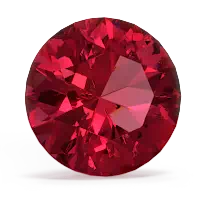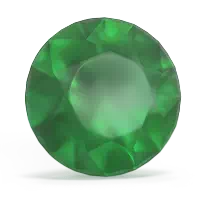

The gemstone is the star in these elegant Lab Ruby solitaire pendants. Gem of hot summer nights and steamy red sunsets, ruby is the birthstone of July. Show the world the passions within you with a fiery ruby ring. The birthstone of May, an emerald ring symbolizes the eternally returning spring. The velvety green color of emerald is a perfect match for spring and summer fashions.